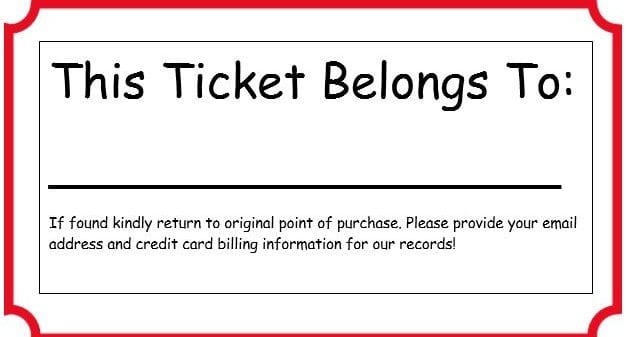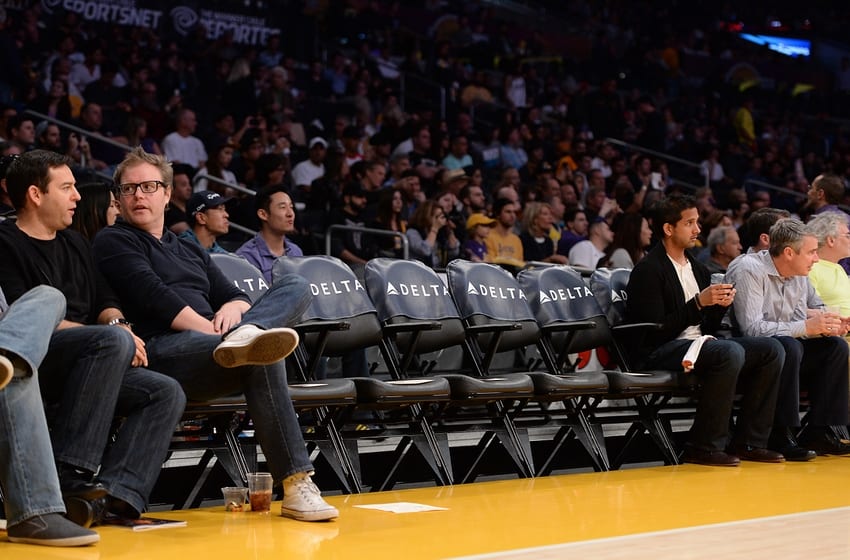by Charles Kaufman, Special to Ticket News
Not to let the genie out of the bottle, but the recent move towards verified ticketing has as much to do with collecting data- which will obviously be purposed for the ticket source’s marketing efforts -as it does with protecting the interests of “Real Fans”. In fact, the very definition of a real fan in this case is not necessarily one who knows song lyrics by heart, can rattle off player statistics at the drop of a hat, or who has the posters plastered all over the bedroom walls; but those who have proven an ability to spend money on the product.
Recently, Taylor Swift implemented a verified ticketing stunt in which priority for tickets to her upcoming tour was granted to those who either engaged with her new material online (“medium” priority to anyone who streamed her new video), or purchased merchandise through her official online shop such as her latest album Reputation (which garnered “top” priority). Of course moving up to a better spot in a lottery is never a sure thing anyway, as anybody who has ever used a presale code can tell you.
Many were offended by Swift’s verification strategy because of its pay to play dynamic,
which also reeked of North Korean style socio-economic cronyism, where only the
most loyal citizens get to live a better life.
The irony here is that the most devoted fans ARE the ones who watch the videos, buy the merch, and profess love to the artist in countless other material ways anyway, so is it really fair to admonish Swift for rewarding those who buy in? In a word, YES. You see, by saying “If you do…, then I will” you’re basically saying “If you DON’T…, then I WON’T.” That, my friends, is called blackmail. Fandom, as it were, is all about no-strings-attached and unconditional love, and it needs to go both ways, as in artist-to-fans as well as fans-to-artist. So, to strong-arm the public into a verification quagmire, which ultimately becomes a cash-cow for the artist, is in truly poor taste.
Ticketmaster turned fan verification into a vetting process for the upcoming Springsteen on Broadway run. There’s not a person alive who didn’t think that this would turn into a resale goldmine that would put Hamilton to shame in terms of prices on the secondary market. So, in order to weed out the bots and brokers, Ticketmaster developed a method of assigning presale codes to “fans” via a lottery, with a strict two ticket limit per order (and with a face price of $850 for front of the house seats, two tickets was probably the most anybody could afford). Of course those lucky enough to get a code were merely granted entrance into the store, with no guarantee that anything would be left on the shelves to buy. In fact if you went after certain seats on a certain date and the seats you wanted were unavailable, you either missed out on other seats- perhaps walking away emptyhanded -or were compelled to purchase different seats that may have been out of budget. The biggest shame of the whole affair is that Ticketmaster was not necessarily verifying you as a living, breathing fan, but rather as someone with a history of doing business on Ticketmaster! Sure, there was an element here that begged a certain level of confidence that you weren’t going to flip your tickets (Come on! Who are we kidding?). To its credit Ticketmaster did supply emails with instructions to prepare would-be buyers for making their Springsteen purchases. But, the spoils in this case still ultimately went to those with Ticketmaster sales records; the lengthier, the better.

For U2’s ongoing Joshua Tree tour, Ticketmaster employed a system which required guests with certain tickets, including floor and premium seats, to wait for hours in lines outside the venue as their credit cards were scanned to verify that the ticket holder was the actual purchaser. This caused many fans to miss the opening act, which also prevented them from buying beer and T-Shirts inside the stadium- a drawback that was foolishly overlooked. The intention here was to ensure that even if legitimately transferred to another individual, via an app, that the ticket was indeed in the hands of the rightful owner. The result however was thousands of frustrated and disappointed fans who would rather have just gotten in the old-fashioned way.
Other bands that have turned to similar verification methods on recent tours include Iron Maiden and Depeche Mode. Additionally, Pearl Jam and Phish have long histories of making priority tickets available to those in their fan club and their perpetual ticket lottery respectively. But, even those come with associated fees and the opportunity to purchase “exclusive” tour and other merchandise, meaning you’ve already laid out some cash, whether you actually get concert tickets or not. And, with no limits on capacity for the fan clubs and ticket lotteries, there can’t possibly be a guaranteed ticket for everyone who signs up.
The common thread in these various verification models is DATA. No matter the technique, the ultimate benefit goes to-among others -the primary ticket source, venue, artist, and even team as more of them adopt mobile ticketing. In many cases a central component to verified ticketing is the reliance on apps and other mobile products which the ticket holder must download onto their smart device in order to access their tickets. The advantage to the ticketholder here is that the tickets reside safely on their phone, easily scanned, and one-of-a-kind. The advantages to the ticket source is that each time an app is downloaded and opened there’s traceable data included in those actions (not to mention the chest beating that goes along with being able to boast about how busy your app is). That data is inevitably and invariably used for targeted marketing. While verified ticketing claims to deter resale, it actually loves resale because each time a ticket changes hands, a whole new “verified” data source emerges.
Now, to steal a line from Seinfeld: “Not that there’s anything wrong with that!”
Anyone with a job these days is grasping at ways to increase revenues and if you’re in the consumer space, marketing is key to all of it. That’s called hustling in the business world. But, that doesn’t mean we should consider our methods anything other than what they are. The problem with paper tickets, and by that we’re talking about the obsolete card stock kind and the getting obsolete PDF printouts, is that since they can get passed along at the watercooler at work or sent as an email attachment, there’s no real way for ticket sources to track the ticket beyond the initial purchase. So, if a ticket changed hands half a dozen times, nobody besides the original purchaser was ever accessible to the ticket seller. Because of verified ticketing, if a ticket changes hands half a dozen times, there are at least seven individual marketing leads, inculding the original purchaser and end user.
So, yes, there’s an added measure of security here that benefits the ticket holder.
Still, we have also seen fans inhibited by the verified ticketing process
in ways that range from confusing or “buggy” apps to system malfunctions that
result in failed deliveries and delayed or denied admission.
At the end of the day, even the staunchest luddites among us will likely have to embrace this new norm in ticketing as the practice evolves and works out the kinks. But, if based on early returns we know that:
- Verified ticketing appears to be no more fan-friendly than traditional ticketing
- That the whole process lacks transparency
- That it’s as much a marketing and data dig as anything else
- Many fans are upset and dissatisfied with it
What can the ticket sources do to REALLY put the fans first?
Use the data to CONNECT with your customers, not just sell to them!
One industry in particular that has embraced the notion of connecting through data is hospitality, and it seems like it’s been this way since the beginning of time. Even before there was such an abundance of information pumping in through IP addresses the world over, it seemed as if hotels knew how to make guests feel special. For example, if a resort knows that a couple is staying on their honeymoon, a care basket of champagne is normally in the room, awaiting the couple’s arrival. A simple gesture to be sure, but effective nonetheless. I recently read an article about a hotel popular amongst Asian travelers, that was so adamant about putting data to good use that it didn’t just have tea instead of coffee available in the room to its Chinese guests, but went as far as to provide the type of tea that was favored in the region of China that the guest was from.
This doesn’t mean that you won’t still get offers and other solicitations from hotels. But, at least there’s some focus on enhancing the experience you’ve already signed up. The ticketing space, as a whole, can learn a thing or two here. Like hotel guests, event goers are hoping to have a memorable and pleasurable experience that can be augmented for the better if their overall needs for the event are more thoroughly addressed. It’s possible to achieve this result by promoting activities and additional information relevant to that particular event. For example, the ticketing source can email best driving routes and other transportation advice to the ticket holder, suggest kid-friendly activities to compliment the event (if kids are involved), provide coupons for concessions, or provide some fun facts about the event, performer, teams, venue, and/or locale at which the event takes place in order to form a better overall acquaintance. This is just to name a few.
There are countless creative ways in which the ticket source can use the
wealth of data it collects to connect more deeply and more relevantly
with its customers. Because right now, getting email alerts urging me
to buy the tickets I browsed; and suggestions for other events I might like
based on my past purchases just doesn’t cut it.
The shift towards connecting more deeply with customers is long overdue and simple to achieve with so much data at our fingertips. In light of its recent bankruptcy filing, retail empire Toys R Us has vowed to restructure itself to offer interactive zones in its stores, areas for birthday parties, character appearances, toy demonstrations, and a bevy of avenues through which customers can engage more thouroughly with the stores and each other. This focus on connection is a formula that may prove a winner for the toy giant; at the very least it’s a sound and forward-looking thought process.
Event ticketing has always been about deep connections because tickets are very often the passport to some of life’s great experiences. The opportunity to share a special moment with family, friends, or even business associates creates lasting bonds and is paramount to what motivates ticket sales in the first place. The “fan-first” credo attached to the verified ticketing models belies the fact that the most stark benefit goes to the ticketing source in the data it collects. If we use that data to connect with customers by enhancing their experiences, in addition to overtly salsey ways, we’ll make an overall better impression that will also help the bottom line.
###
This post originally appeared on LinkedIn
Charles Kaufman is President and CEO of Seatslink, a New York based ticket resale source founded on connecting more deeply with its customers so that they have truly memorable event experiences. Visit Seatslink online at www.seatslink.com, message me on LinkedIn, email [email protected], or call 718-676-0504 for information and advice of tickets, events, and other services.
Thank You for reading. I welcome your thoughts and feedback on this article.


